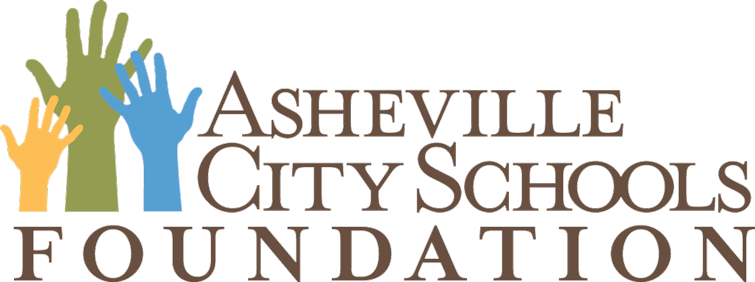Equity Statement
We will do whatever it takes to center anti-racist, equitable practices in every facet of our organization including finances, programming, and operations.
We will do whatever it takes to include student voice in guiding our organization; we commit to asset framing, recognizing the genius, joy and aspirations of our BIPOC (Black, Indigenous, (and) People of Color) students in particular who have been most impacted by inequities in our school system, city, and nation.
We will do whatever it takes to share our humanity: as an organization committed to lifelong learning, we are committed to growing through our mistakes and our successes.
In that spirit, we encourage and invite our ACS community’s feedback and partnership. To support accountability and to be accessible as we continue to do this work, we hope you’ll share your ideas, questions, and experiences. Email us at acsf@acsf.org or call (828) 350-6174.
Where We’ve Been
The evolution of our work and the ongoing partnerships we have built within our community inform who we are as an organization.
In 2013, the ACSF Board of Directors engaged in strategic reflection and planning for 18 months, revising board practices, committees, and decision-making to address inequities in our organization’s leadership and membership. More than 50 Asheville City Schools teachers and staff attended a retreat on structural racism. Two panels were held on the history of desegregation in our school system, and the lasting impacts of that history on our community.
In 2015-2016, support from the Z. Smith Reynolds Foundation enabled ACSF to systematically target efforts to address the opportunity gap on an individual school-level. At the conclusion of 2016, four out of eight city schools had racial equity teams and were granted funds to focus on attendance, achievement, and discipline disparities between white and black students. ACSF advanced our programs by incorporating racial equity strategies.
In 2017-2018, ACSF collaborated with Asheville High and the School of Inquiry and Life Sciences at Asheville in a student-focused equity initiative called The Listening Project. The Listening Project was a collaborative effort to identify existing barriers and opportunities for student success. ACSF was particularly struck by the following themes: students are deeply aware of racial disparities and are eager to have honest conversations with both their peers and teachers concerning the historical context of race, current manifestations of systemic racism, and methods for advancing equity. ACSF revised our development policies and strategies. ACSF Board of Directors added student representatives.
In the winter and spring of 2018, ACSF invited our community to participate directly in our learning through four events entitled the Choosing Equity series. Choosing Equity was designed to specifically address the challenging history and current manifestations of racial inequities in Asheville. Each event was intentionally designed to amplify the voices of students and adults of color, including McArthur Fellow and award-winning author of the 1619 Project, Nikole Hannah-Jones. ACSF was recognized as a state-wide leader of civic engagement for our work with the Choosing Equity series and began our partnership with the Institute for Emerging Issues. ACSF revised our college scholarship policies. In partnership with United Way, ACSF implemented the Parent Leadership Program at Asheville Middle School. ACSF funded suggestions generated during the Choosing Equity series, including the creation of additional student supports such as The Writing Center at Asheville High School.
In the winter of 2019, ACSF continued the work of The Listening Project with a community event, The Listening Project Live: Youth Voices on Race, Gentrification, and Home with special guest Glenis Redmond and featuring MTV Cultural Critic and award-winning poet, Hanif Abdurraqib. During this event, high school students shared their lived experiences and perspectives on educational equity with an audience of over 300 community members. ACSF staff completed Racial Equity Institute Phase I Training. ACSF began our partnership with UNC Asheville’s Applied Research Workshop to support student led research on educational inequities in our district. In the fall of 2019, members of ACSF staff attended the Color of Education Conference where The Equity Collaborative and students of Enloe High School presented on the topic of students teaching teachers culturally proficient classroom practices. The efficacy and impact of youth leadership in Enloe provided a new framework for how ACSF conceptualized an innovative new program in our high schools called the Racial Equity Ambassadors.
In fall of 2020, in collaboration with Asheville City Schools and The Equity Collaborative, ACSF launched an innovative new program called the Racial Equity Ambassadors at the city high schools. The Racial Equity Ambassadors are comprised of approximately 30-35 diverse student leaders from Asheville High School and SILSA who engage and educate our ACS teachers on culturally responsive strategies for the classroom. In November 2020, ACSF partnered with Dr. Tiece Ruffin from UNC Asheville and other local Black Educational Scholar-Activists to lead community and parent forums on actualizing equity and best-practice strategies for closing the opportunity gap. Over 200 community members, educators, administrators, parents, and students participated in these forums and learned concrete strategies for increasing equity in our local schools.









